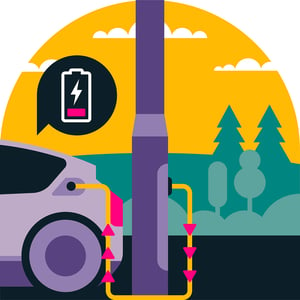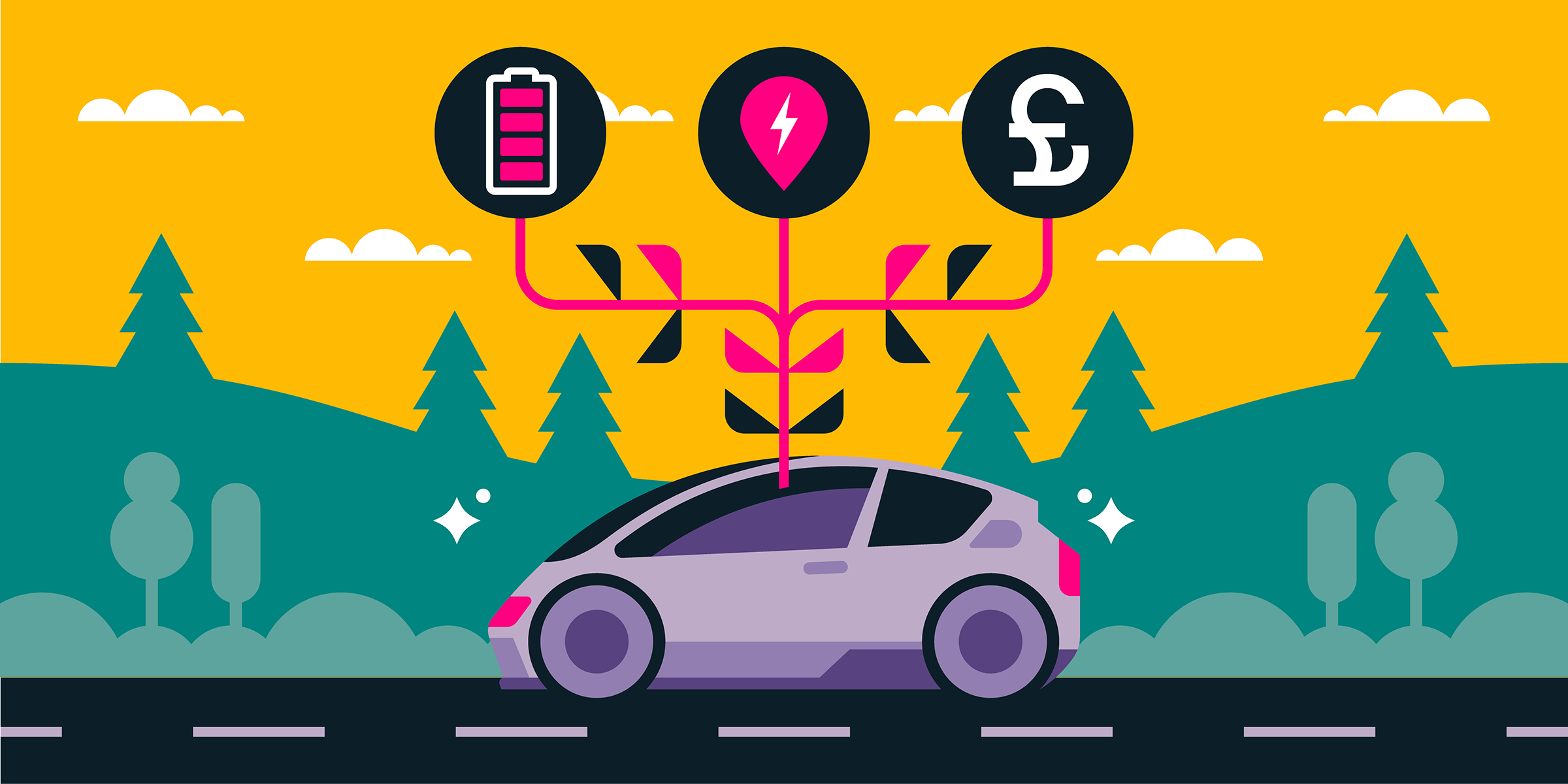Three reasons why people don't buy electric cars - but actually should!
If you’re sticking to driving petrol or diesel cars, and avoiding making the leap to an electric vehicles (EV), then what’s putting you off?
Common reasons to avoid the leap to electric include concern about how far an EV will go before it needs charging, known as range anxiety; worries about finding a charging point when it’s really needed; and the cost of buying an electric car, rather than a gas-guzzler.
But are these worries valid nowadays? Let’s have a look at each of these concerns one by one.
1. I'm worried an electric car won't travel far enough before it needs charging
One of the biggest deterrents for potential EV owners is a concern about just how far they can travel before they need to charge their vehicle. In fact, a survey conducted last year revealed 81% of respondents were concerned about ‘battery charge and range’ when buying an EV.
It appears that many people still don’t trust the advertised range that manufactures display on EV models. They’re also concerned that these estimations don’t take into account whether drivers are using other features like air conditioning and heating, which also use up battery power.

While early EVs may have had a more limited range, the technology has improved drastically in recent years. Today, some models, such as the Tesla Model 3, even have an estimated range of almost 300 miles.
And it’s not just the priciest models that offers improved range. The Nissan Leaf, one of the most affordable EV options available, advertises an impressive range of 235 miles.
These ranges will only get longer and longer as the technology improves.
It’s also important to consider how you use your car day-to-day, as most of people don’t tend to regularly take trips that cover hundreds of miles – actually, according to the RAC Foundation the average commute length in England and Wales is around 10 miles. With that in mind, it’s more than likely that an EV’s range would more than cover most people’s daily use.
For more information and tips on overcoming range anxiety, read our blog here.
2. There aren't enough charging points for me to both with an electric car
Another common concern for drivers who are mulling over a switch to electric is the availability of charging points. After all, you don’t want to get stuck in the middle of nowhere with a flat battery.
It’s worth noting for non-EV drivers that charging your car at home is the easiest and most convenient option, and if you have a driveway then getting a dedicated charging point installed is the best way forward. There is also government financial support available for getting started, in the form of the OLEV grant which offers EV drivers a £350 grant for purchasing and installing a home charging point.
But for anyone without driveway space, particularly those living in inner-city areas, the option of a home charging point may be off the table for now; although various solutions are being developed to enable more people to charge EVs at home and these are being trialled throughout the UK. Among these are lamp-post charge points, of which there are around 1,000 available on residential London streets. You can also write to your local authority and ask if they will install a charge point in your street.

It’s also worth considering whether your workplace has a charging point you could take advantage of, or if they’d be willing to install one with the help from the government’s Workplace Charging Scheme. If so, this might be a free and convenient way to top up each day.
If you can’t charge at home or at work, public charge points are also an option and the number available will increase in the coming years with many local authorities announcing investment in EV infrastructure.
To find out where your local charging points are, then take a look at this map.
3. EVs are so much more expensive than petrol or diesel cars
While the so-called ticket price of a new EV is higher than a new petrol or diesel car, try not to let this put you off.
There are a number of benefits and discounts available to EV owners as the government and local authorities work to encourage take up. These include exemption from road tax, and government grants such as up to £3,000 off the cost of a new ‘category 1 model’ – this is a so-called ‘pure electric’ model and can be used for cars up to the value of £50,000.
As the number of EVs on UK roads continues to rise, buying second hand will also become more accessible. There are currently around 3,000 second-hand EVs listed for sale on Autotrader and some dealerships also offer approved used models, so it’s worth exploring if your budget is low.
You can read our blog for tips on buying a second-hand EV here.
But what about the added cost to your home energy bills?
According to a study conducted in 2018, charging an electric vehicle at home could add around £175 a year to your electricity bill – significantly less than most people spend on petrol. In fact, experts estimate switching to an EV could save the average driver over £41,000 during their lifetime.
You could also save even more by making sure you’re on the cheapest energy tariff, with a saving of around £300 available to those who switch to the cheapest deal.
And then there’s maintenance – or a lack of it. With many fewer moving parts than normal petrol and diesel cars, electric cars require less TLC, potentially saving on money spent at the garage. They don’t, for example, need oil changes because no oil is required to lubricate the engine.
Cheaper to run and greener
There has been an obvious increase in the popularity of electric vehicles in recent years, but as they currently make up just 0.5% of the total number of cars on the road, there’s a long way to go yet.
If you’re on the lookout for a new car then an electric model can be a great option – they’re cheaper to run and maintain, drive well and they’re greener, helping you do your part to tackle the climate emergency.
• • •
With Loop, you can find out how you use electricity, then make smart decisions about using less - click here to find out more. We have a risk-free, no-quibble, money-back guarantee as standard, so what's to lose...apart from some £££ from your bills and some weight from your carbon footprint?







